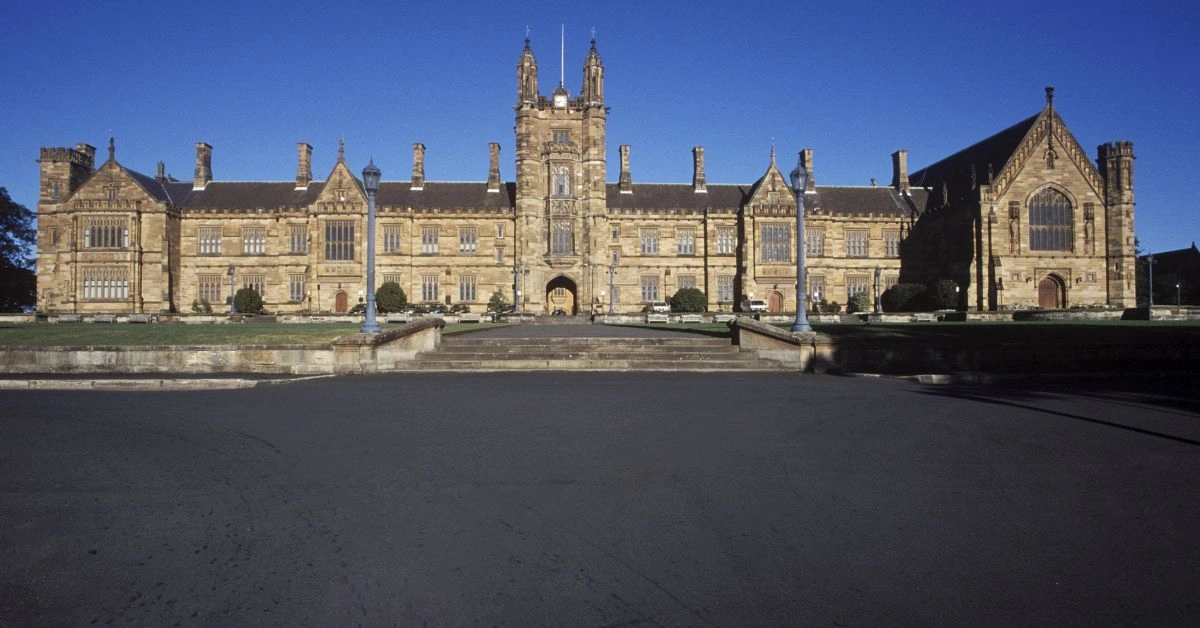University of Metaphysical Sciences Lawsuit Update: Key Insights
The University of Metaphysical Sciences (UMS) is a prominent institution offering education in spirituality and metaphysics. It has gained attention for its unique approach to teaching metaphysical sciences and its global community of students. Recently, UMS has been in the spotlight due to an ongoing lawsuit that has raised questions about its practices and credibility.
This lawsuit has drawn significant interest, not just from the metaphysical community, but also from the broader public. It involves serious allegations that could impact the reputation of UMS and the future of metaphysical education. Legal proceedings like this can create confusion, and many are seeking clarity about what has happened so far and what lies ahead.
Understanding this legal case is important for anyone invested in metaphysical education or alternative learning. It touches on issues of ethics, accountability, and the challenges institutions face in maintaining their integrity. The outcome could have lasting effects on students, educators, and similar organizations.
In this blog, we will explore the details of the situation, starting from its origins to the latest developments. We’ll also examine the implications for the metaphysical community and what this case reveals about the field as a whole. By presenting accurate and well-sourced information, this post aims to help readers stay informed and form their own perspectives.
If you are curious about how this legal battle began, what it involves, and what might happen next, this blog will provide all the key insights you need.
| Aspect | Fact | Figures/Timeline |
|---|
| University Involved | University of Metaphysical Sciences (UMS) | N/A |
| Allegations | Unethical practices, intellectual property conflicts, misleading advertising, and concerns about financial/student record management | Ongoing legal dispute since 2020 |
| Defense Stance | UMS denies allegations, asserting they are part of an attempt to damage its reputation | N/A |
| Trial Timeline | Trial scheduled for June 2025 | June 2025 |
| Fundraising Campaign | Crowdfunding to cover legal expenses launched in 2022 | 2022 |
| Media Coverage | Mixed reports in media, with polarized opinions | N/A |
| Community Support | Strong support from community via donations | Crowdfunding campaign raised funds in 2022 |
| Impact on Students | Current students uncertain, some paused studies; prospective students cautious | Ongoing impact as of 2024 |
| Public Perception | Polarized narrative due to media coverage and social media discussions | N/A |
| Broader Industry Impact | Calls for higher ethical standards, transparency, and reform in metaphysical education | Industry-wide attention in 2024 |
| Key Legal Proceedings | Initial filing in 2020, delays in legal process | June 2025 trial set |
| Critics’ Concerns | Ethical concerns over use of funds for legal defense instead of addressing internal issues | N/A |
| Potential Consequences for UMS | Legal outcome could affect UMS reputation and the value of degrees | Long-term impact expected |
| Potential Consequences for the Industry | Industry-wide reform in accreditation and ethical practices may follow | Ongoing discussions since 2024 |
Background of the Case
How It Started
This legal dispute began with allegations made by a competing institution specializing in metaphysical studies. The claims centered on unethical practices and potential issues with certifications and operations. These accusations quickly gained attention within the metaphysical education community.
As a widely recognized organization, UMS’s involvement in such a dispute has raised concerns among its students and alumni. Many people began questioning the potential effects on their education and the institution’s reputation. The situation became a focal point for discussions about accountability in spiritual education.
Key Allegations
The accusations include claims of intellectual property conflicts and misleading advertising. Critics allege that the organization may have misrepresented elements of its courses and accreditation. These claims have been strongly contested, with the accused institution asserting its adherence to ethical standards.
Additionally, questions were raised about how financial and student records are managed. These concerns have put a spotlight on the administrative practices of spiritual education providers. The allegations have also led to debates about fair competition within the industry.
Defense Stance
The organization at the center of the dispute has consistently denied all allegations. It argues that the claims lack substance and appear to be an attempt to damage its reputation. Its representatives maintain that their operations comply with ethical and legal standards.
The institution has highlighted its long-standing commitment to providing quality education in spirituality and metaphysics. It sees this legal battle as an opportunity to prove its integrity. Supporters of the organization have expressed confidence that the truth will come out during the trial.
Timeline of Events
The case officially began in 2020, with initial filings from the plaintiffs. Over the years, there have been delays due to legal complexities and scheduling conflicts. Currently, the trial is set to take place in June 2025.
In 2022, a fundraising campaign was launched to help cover legal expenses. This effort received significant support from the community. However, the delays have left many frustrated, as they wait for a resolution.
Broader Significance
This legal conflict goes beyond the immediate parties involved. It raises important questions about the ethical responsibilities of institutions offering spiritual education. The outcome of this case could influence how similar organizations operate in the future.
By understanding the background of this case, readers can gain valuable insights into the challenges faced by providers of metaphysical education. It also highlights the importance of transparency and accountability in the field.
Recent Developments
Trial Delays and Rescheduling
Since the dispute began, multiple delays have pushed back the resolution of the case. The trial is now scheduled for mid-2025, marking another significant milestone in this prolonged process. These delays have been attributed to the complexity of the legal arguments and court scheduling issues.
The extended timeline has left many stakeholders feeling frustrated. Supporters of the institution have expressed hope that the trial will bring clarity, while critics remain eager for accountability. Both sides are preparing for what could be a pivotal legal battle.
Public Statements and Community Reactions
The institution facing these allegations has released several statements reaffirming its commitment to ethical practices. It continues to defend itself vigorously, urging supporters to remain patient and optimistic. These messages have resonated with many in its community.
Opponents, however, have pushed for greater transparency and accountability. They believe this situation highlights broader issues within the spiritual education sector. These differing perspectives have fueled debates in public forums and online platforms.
Fundraising Efforts
To address the financial burden of legal proceedings, the organization launched a crowdfunding campaign in 2022. This initiative received strong backing from its community, showcasing the loyalty of its supporters. Many contributors see this as a way to stand in solidarity with the institution.
However, critics have raised ethical concerns about using donations for legal defenses. They argue that the funds could be better utilized to address systemic issues within the organization. This has added another layer of complexity to the ongoing discussions.
Media Coverage and Public Perception
Media outlets have covered the case extensively, with reports offering varying perspectives. Supporters highlight the positive impact of the institution’s work, while critics focus on the allegations and their implications. This mix of viewpoints has created a polarized narrative.
Social media has amplified these discussions, with users sharing opinions and updates. The widespread attention reflects the broader interest in the ethical standards of metaphysical education providers.
Preparing for the Next Phase
With the trial set for 2025, both sides are now focused on preparing their arguments. The outcome of the case could have far-reaching implications for all parties involved. Until then, the metaphysical community remains divided, awaiting a resolution that could shape the future of the industry.
Impact on the Metaphysical Community
Reputation and Credibility
This case has raised significant concerns about the credibility of spiritual education providers. Students and alumni are particularly worried about how the allegations might affect the value of their degrees. Even if the institution is proven innocent, the damage to its reputation could be lasting.
The situation has also drawn attention to competing organizations, many of which are now under increased scrutiny. The ripple effects have sparked important conversations about the need for higher standards in the field.
Trust and Transparency
Trust is a cornerstone of any educational institution, especially in the metaphysical field. This legal conflict has made many people question the transparency of spiritual education providers. As a result, potential students are now more cautious when choosing where to study.
The broader industry is being called upon to address these concerns by implementing clearer ethical guidelines. These changes are necessary to rebuild trust and ensure accountability.
Challenges for Current and Future Students
Current students may feel uncertain about the value of their education during this legal conflict. Some have chosen to pause their studies, waiting for a resolution. Meanwhile, prospective students may hesitate to enroll, fearing the impact of ongoing disputes.
The case has highlighted the importance of clear accreditation and ethical operations in spiritual education. Institutions that fail to meet these standards risk losing the confidence of their students.
Industry-Wide Implications
This legal case has underscored the need for reform within the metaphysical education sector. Many believe that higher standards for transparency and accountability are essential. These changes could lead to stronger institutions and a more trustworthy field overall.
By addressing these issues, the metaphysical community can move forward with greater integrity. This will benefit both educators and students in the long run.
Conclusion
The ongoing legal case involving the University of Metaphysical Sciences has sparked significant debate within the spiritual education community. The allegations have raised critical questions about ethics, accountability, and transparency in the field of metaphysical studies. The case’s outcome will likely have far-reaching effects, not only on the institution involved but on the broader industry as well.
As the trial approaches, stakeholders are left grappling with the potential consequences for students, educators, and similar organizations. Regardless of the outcome, this case emphasizes the need for higher standards in spiritual education, greater transparency, and better ethical practices. Only through addressing these issues can the metaphysical community rebuild trust and ensure a sustainable and credible future for educational institutions.
FAQs
What are the key allegations in the ongoing legal case?
The primary allegations include unethical practices, intellectual property conflicts, misleading advertising, and concerns over how financial and student records are managed. These accusations have led to increased scrutiny of the institution’s operations.
How has the institution responded to the allegations?
The institution has denied all allegations, asserting that they are unfounded and part of an attempt to damage its reputation. It has defended its commitment to providing ethical education and insists that its practices adhere to legal and ethical standards.
What impact has the legal case had on the metaphysical education community?
The case has raised concerns about the credibility and trustworthiness of spiritual education providers. It has sparked discussions about the need for higher ethical standards, transparency, and accountability in the industry.
How are students and alumni affected by the lawsuit?
Many students and alumni are worried about the potential impact on the value of their degrees and the institution’s reputation. Some current students have paused their studies, while prospective students may be hesitant to enroll due to the ongoing dispute.
How are fundraising efforts being handled?
In 2022, the institution launched a crowdfunding campaign to support legal expenses. While it received strong backing from supporters, critics have raised concerns about the ethical use of donations for legal defense rather than addressing systemic issues within the organization.
When is the trial expected to take place?
The trial is currently scheduled for June 2025, marking a significant milestone in this lengthy legal process. Both sides are preparing for what could be a pivotal moment in the case.
What are the broader implications of this case for the metaphysical education sector?
The case has highlighted the need for reform within the sector, particularly regarding accreditation standards and ethical operations. If successful, it could lead to higher standards and greater accountability for metaphysical education providers.


